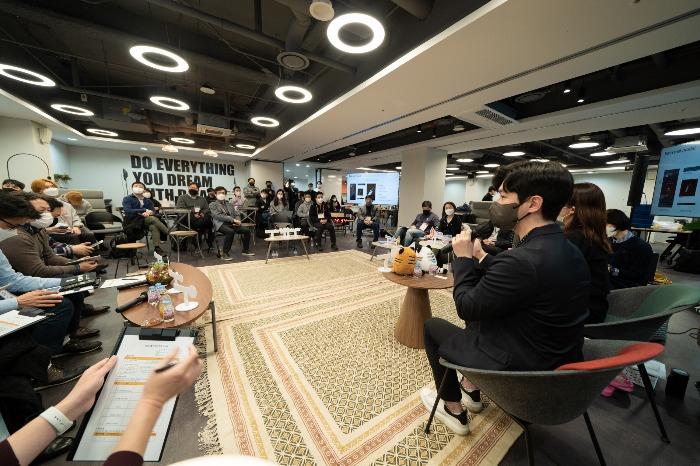Translink and Banks Foundation form $10 mn fund for S.Korean startups
The partnership fund will provide 300 million won on average to each early startup
By Mar 14, 2022 (Gmt+09:00)
LG Chem to sell water filter business to Glenwood PE for $692 million


Kyobo Life poised to buy Japan’s SBI Group-owned savings bank


KT&G eyes overseas M&A after rejecting activist fund's offer


StockX in merger talks with Naver’s online reseller Kream


Mirae Asset to be named Korea Post’s core real estate fund operator



South Korea’s venture capital firm Translink Investment and non-profit organization Banks Foundation for Young Entrepreneurs agreed to launch a joint fund worth 12 billion won ($10 million) aimed at injecting overseas capital into early stage domestic startups.
The Translink Day1 Investment Partnership V plans to invest more than 60% of the total funding into startups in the Front1 and D.Camp ecosystem. The Banks Foundation operates both the startup office space and the accelerators.
In particular, more than 6 billion won ($5 million) worth of investment will go to startups that were chosen to present at D.Camp’s monthly demo day this year.
“We recently completed due diligence on the startups that presented at the February D.Day and will get to the details of the investment in the near future,” Scott Lim, the team lead at Translink said.
Translink Investment is a joint venture between South Korean partners and Silicon Valley-based Translink Capital.
“We hope for a synergy effect between startups that will receive public relations and investment benefits and the investment firms that will utilize the channel to find high-caliber startups,” said Hyohyun Kim, the head of the fund team at D.Camp.
On average, the fund will provide 300 million won to a startup in seed to pre-Series A rounds.
The particular aim is to prevent the Death Valley curve, which refers to the period between when a startup company receives funding and when it begins to generate positive cash flow.
The joint project also plans to maximize the so-called hit rate by sharing necessary resources to the selected startups through its internal networks.
Write to Jee Abbey Lee at jal@hankyung.com
-

-
 Korean chipmakersSamsung in talks to supply customized HBM4 to Nvidia, Broadcom, Google
Korean chipmakersSamsung in talks to supply customized HBM4 to Nvidia, Broadcom, Google23 HOURS AGO
-
 EnergyLS Cable breaks ground on $681 mn underwater cable plant in Chesapeake
EnergyLS Cable breaks ground on $681 mn underwater cable plant in ChesapeakeApr 29, 2025 (Gmt+09:00)
-
 Business & PoliticsUS tariffs add risk premium to dollar assets: Maurice Obstfeld
Business & PoliticsUS tariffs add risk premium to dollar assets: Maurice ObstfeldApr 29, 2025 (Gmt+09:00)
-



